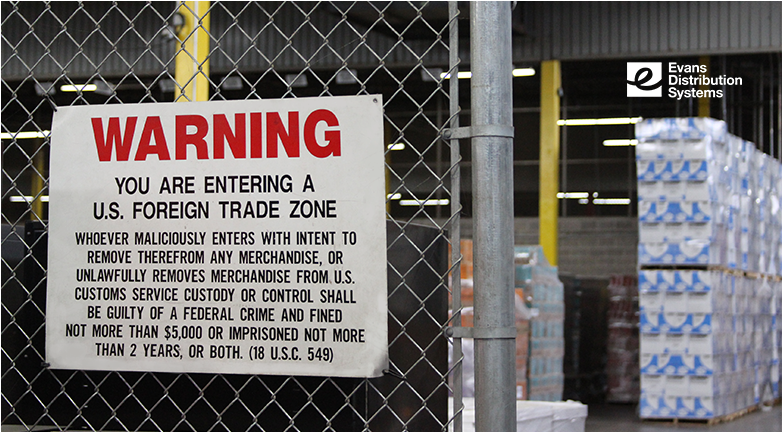A Foreign Trade Zone (FTZ) is a special economic zone in the United States where imported goods can be stored, distributed, processed and used without being subject to customs duty fee. FTZs were created in 1934 under the Foreign Trade Zone Act. Its purpose was to create and retain employment and capital investment in the US and to increase the global competitiveness.

Many industries such as supply chain, automotive, general manufacturing, etc., use FTZs to gain a competitive advantage. Within these zones, some activities like assembling, manufacturing, and repackaging can be done helping to lower costs for companies. Listed below are six advantages of operating in an FTZ.
1. Deferral of Duties
FTZs are a part of the customs duty deferral program and allow the biggest reduction of duty deferral of any kind in the program. Bringing products into an FTZ allows you to defer duties to a later time because goods have not yet entered the country. It can exempt you from inventory tax and other taxes as well.
2. Relief from Inverted Tariffs
An inverted tariff is when the duty rate for the raw materials is higher than the duty rate for the finished good. However, when using an FTZ, only the lowest duty needs to be paid. This potentially eliminates the costs associated with importing raw materials because most of the time the tariff on manufactured goods is zero.
3. Elimination of Duties on Waste, Scrap and Yield Loss
Duties only need to be paid when a product leaves the zone and enters the US. As mentioned above, most of the time goods are leaving the zone as finished products which helps manufacturers save money on the raw materials. Since the product is being produced in the FTZ, any waste, scrap, or yield loss is not dutiable.
4. Weekly Entry Savings
Shipping your product into an FTZ will reduce the costs of filing custom entries. Every time a company brings product in the US, an entry fee must be paid. It consists of a 0.21% merchandising process fee with a $25 minimum and $485 maximum depending on the value of the goods. These fees must be paid every time product enters the US. However, if an FTZ is used, then filing custom entries only need to be done once a week, saving money and time.
5. Zone-to-Zone Transfers
FTZs can be used to take advantage of crossdocking and transferring goods from one FTZ to another without paying any duties. This helps companies lower their overall costs structure and optimize just-in-time supply chain.
6. Global Competitiveness Enhancement
There are a lot of advantages that come with operating in an FTZ. Companies can defer or eliminate duties, reduce costs on entry fees, and optimize their supply chain. Lowering these costs makes it easier for US companies to compete in a global marketplace.
As you can see, FTZs are extremely beneficial especially during times when tariffs are changing, and new foreign trade policies are being implemented. To learn more, please check out Using an FTZ.
